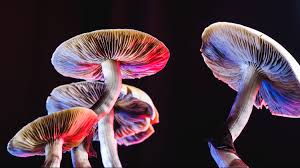
Minneapolis is withdrawing from enforcing laws that criminalise buying psychedelic plants or using them in private.
Mayor Jacob Frey on Friday ordered police to stop using taxpayer dollars to enforce most laws against hallucinogenic plants. Minneapolis still prioritises enforcing laws against selling psychedelic plants, bringing them to schools or using them while driving.
Minneapolis Police Chief Brian O’Hara in a statement said he stands by the mayor’s decision.
Announcing the order, Frey cited the potential for hallucinogenic plants to treat mental illnesses including depression and post-traumatic stress disorder.
“Experts are telling us that these plants help people, and that’s the business we should be in – helping people,” Frey said in a statement. “With a rise in deaths of despair in our city, and in our society, the data is showing that these plants can help be a remedy.”
Some researchers believe psilocybin, the compound in psychedelic mushrooms, changes the way the brain organizes itself and can help users overcome things like depression, alcoholism and post-traumatic stress disorder. A drug that’s related to the anesthetic ketamine was cleared by the FDA to help people with hard-to-treat depression.
But medical experts caution that more research is needed on the drugs’ efficacy and the extent of the risks of psychedelics, which can cause hallucinations.
The American Psychiatric Association has not endorsed the use of psychedelics in treatment, noting the Food and Drug Administration has yet to offer a final determination.
The FDA designated psilocybin as a “breakthrough therapy” in 2018, a label that’s designed to speed the development and review of drugs to treat a serious condition. MDMA, also known as ecstasy, also has that designation for PTSD treatment.
The FDA in June released draft guidance for researchers designing clinical trials testing psychedelic drugs as potential treatments for a variety of medical conditions. The Biden administration has also provided to the National Institutes of Health and other agencies funding for dozens of projects studying psychedelic drugs with potential benefits for mental and behavioural health.















